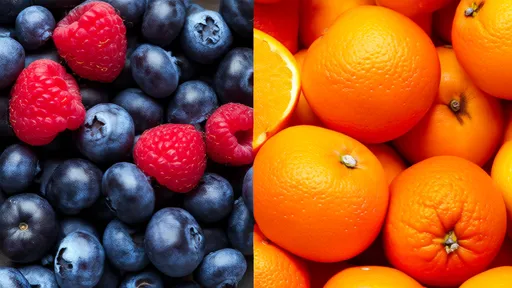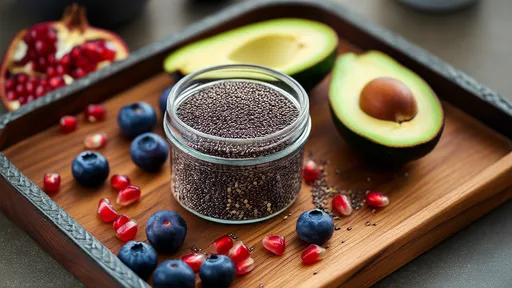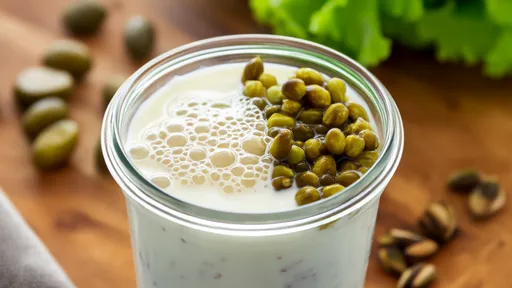When it comes to fermented foods and probiotics, the conversation often turns to three popular choices: yogurt, kimchi, and kefir. Each of these foods has a rich history and a unique profile of beneficial bacteria, making them staples in many diets around the world. But which one is truly the best? The answer isn't as straightforward as it might seem, as each offers distinct advantages depending on your health goals, taste preferences, and cultural context.
Yogurt is perhaps the most widely recognized probiotic food in the Western world. Made by fermenting milk with specific bacterial cultures, typically Lactobacillus bulgaricus and Streptococcus thermophilus, yogurt is praised for its creamy texture and tangy flavor. It is an excellent source of calcium, protein, and live active cultures that can aid in digestive health. Many studies have linked regular yogurt consumption to improved gut microbiota, enhanced immune function, and even better bone health. However, not all yogurts are created equal. Some commercial varieties are loaded with added sugars and artificial flavors, which can undermine their health benefits. For those who are lactose intolerant, yogurt might still be tolerable due to the fermentation process breaking down much of the lactose, but it's not a guaranteed safe bet for everyone.
Kimchi, a traditional Korean dish, is a spicy fermented cabbage that has gained international acclaim for its robust flavor and health properties. The fermentation process involves lacto-fermentation, which naturally preserves the vegetables and produces beneficial bacteria like Lactobacillus kimchii and other lactic acid bacteria. Kimchi is not only rich in probiotics but also packed with vitamins A, B, and C, as well as fiber and antioxidants. Its nutritional profile supports gut health, reduces inflammation, and may even contribute to weight management. The bold, pungent taste of kimchi makes it a favorite for those who enjoy complex flavors, and it's incredibly versatile in dishes ranging from soups to stir-fries. However, its high sodium content can be a drawback for individuals monitoring their salt intake, and its strong flavor might not appeal to everyone.
Kefir, often referred to as the "champagne of dairy," is a fermented milk drink that originated in the Caucasus Mountains. It is made by adding kefir grains—a combination of bacteria and yeasts—to milk, resulting in a tart, effervescent beverage. Kefir boasts a more diverse probiotic profile than yogurt, containing up to 30 different strains of bacteria and yeasts, such as Lactobacillus kefiri and Saccharomyces kefir. This diversity can lead to a more balanced gut microbiome, potentially offering stronger benefits for digestion and immune support. Kefir is also lower in lactose than yogurt, making it a better option for those with lactose intolerance. Additionally, it's a good source of protein, calcium, and B vitamins. For those who avoid dairy, water kefir is a viable alternative, though it may have a different nutrient profile.
Comparing these three fermented foods, yogurt stands out for its accessibility and mild taste, making it an easy addition to daily diets. Its well-researched benefits for bone and digestive health make it a reliable choice. Kimchi, on the other hand, offers a unique combination of probiotics and phytonutrients from vegetables, providing anti-inflammatory and antioxidant benefits that go beyond gut health. Its distinct taste may require an acquired palate, but for those who enjoy it, kimchi can be a flavorful way to boost overall wellness. Kefir, with its extensive range of probiotics, might be the most powerful in terms of microbial diversity, potentially offering superior gut health benefits. Its slightly fizzy texture and tangy flavor can be refreshing, and it's particularly suited for those seeking a highly probiotic-rich option with minimal lactose.
Ultimately, the "best" choice depends on individual needs and preferences. If you're looking for a gentle introduction to probiotics, yogurt might be your go-to. If you want to explore bold flavors and reap the benefits of fermented vegetables, kimchi could be ideal. For those seeking maximum probiotic diversity and potency, kefir may be the winner. Incorporating a variety of these foods into your diet can provide a broad spectrum of health benefits, ensuring a well-nourished gut and a more resilient body. So, rather than picking one, why not enjoy all three and let your taste buds and health thrive together?

By /Aug 29, 2025

By /Aug 29, 2025

By /Aug 29, 2025

By /Aug 29, 2025

By /Aug 29, 2025

By /Aug 29, 2025

By /Aug 29, 2025

By /Aug 29, 2025

By /Aug 29, 2025

By /Aug 29, 2025

By /Aug 29, 2025

By /Aug 29, 2025

By /Aug 29, 2025

By /Aug 29, 2025

By /Aug 29, 2025

By /Aug 29, 2025

By /Aug 29, 2025

By /Aug 29, 2025

By /Aug 29, 2025

By /Aug 29, 2025